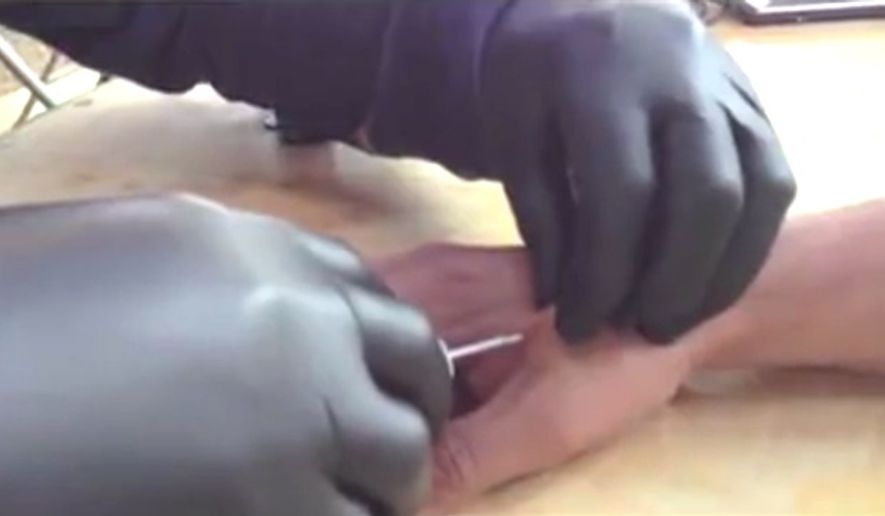OPINION:
A Wisconsin company is asking employees if they want to get a Radio Frequency ID microchip implanted in their hands, in the space between the thumb and forefinger.
Welcome to the next era — a creepier, more intrusive, less private era where the lines between constitutional and not grow fuzzy, and the opportunity for unintended consequences to grow seems unlimited.
The chip doesn’t have GPS tracking ability — not yet, anyway. But that’s a matter of time, right?
What it does have is a bunch of capabilities that range between fun with a capital C, for Cool — like opening doors or logging into computers with the wave of a hand — to biblically and prophetically dire, for Christians at least, that seem to usher in a one-world system of economics that requires a mark of the beast to buy and sell. Specifically, those who volunteer to take the chip will be able to pay for their purchases at outlets that have compatible RFID readers, share business cards with associates, and store and carry their personal medical information.
So far, about 50 employees of Three Square Market, the vending software company that’s offering the chip, have come forward to say they’ll take it.
“Eventually, this technology will become standardized, allowing you to use this as your passport, public transit, all purchasing opportunities, etc.,” wrote Todd Westby, Three Square Market’s chief executive, in a blog post announcing the voluntary program, The Washington Post reported.
And that’s what’s frightening.
Companies may see the technology as just another method of paying for purchases — a faster-track debit card, and one that doesn’t require the three to five seconds it takes to remove from pocket and swipe.
But really, would-be users should be seeing it as yet another opportunity for hackers to hack, for government to misuse, for civil rights to become infringed. Think of the ease by which a socialist might spread the wealth with this technology — simply shutting down one’s ability to purchase and giving it to another?
That’s rather a quip. But the message is this: Who is the keeper of the key of this technology? How about in the future? Government as its eventual gate guard is not a comforting thought.
Do we really want a country where the ability to buy and sell comes down to the operational abilities of a technological chip?
Sweden apparently does. The RFID hand chip has become somewhat of a cultural sweep at one company, where workers — as The Post put it — “seem to love it.” But putting privacies at risk to save, say, five seconds of reaching in pocket to pull out debit card, seems almost anti-American.
At the least, it’s lazy. At worst? Opportunity for evil — opportunity for those with corrupt designs to steal privacies, data and resources, and in the end, exert controls that rightly belong with the individual.




Please read our comment policy before commenting.